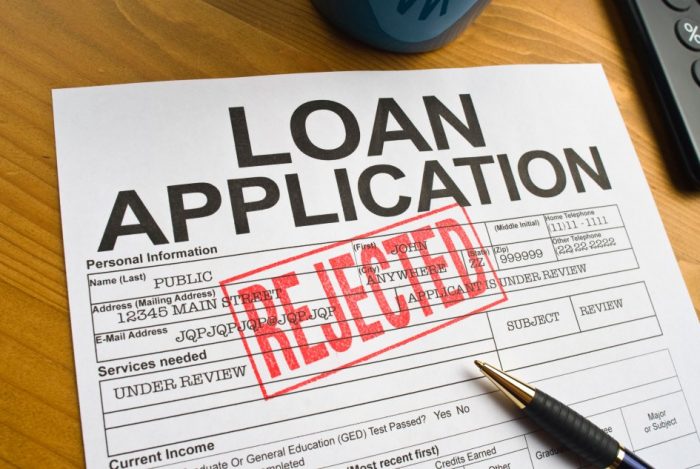
Many people across the world have struggled through the coronavirus pandemic, and despite the financial support and stimulus offered by governments globally many of us found that this was simply not enough, particularly those of us who are self employed in the early months of the pandemic when business dried up but only limited assistance was available when compared to the generous furlough scheme for employees. As such, many people in this self employed demographic (including yours truly) found themselves turning to credit and loan applications to help make up the financial shortfall during an unprecedented time.
However, as one might expect. It’s not always that easy to get a loan application approved and receive the money that you need as easy as all that, especially in the midst of world wide economic uncertainty and a surge of desperate credit seekers all trying to cover their bases. This is the crux of what I want to discuss today.

Many lenders are being more particular about the loan applications they receive and you may find that you have had one or more loan applications rejected in the past year. This can really feel devastating and it’s not just affecting applicants with an obviously bad credit score. Depending on the lender a sudden lapse in your income (such as the break down of business from Covid) can be enough to set alarm bells ringing and have you blacklisted as an applicant until your regular payments become self-evident again.
The extra difficulty and danger is that once you get one loan application rejected, if you continue to apply for loans, it’s likely that other lenders could follow suit. They will see that there is a “footprint” on your credit file and you may find that you are getting yourself into a vicious circle of loan application rejections, which only goes to weaken your overall credit file even more.

If you do really (really) need to apply for a loan and have thought carefully about your options, the best thing you can do is put yourself into the lender’s shoes. Do not approach your application from a perspective of panic or despair. By taking your time with a deep breath and seriously focusing your efforts on your loan application, you have more chance of getting it approved. Here are some of the salient points you should look out for when preparing your loan application.
Other debts

Ultimately, lenders will want to ensure that you are in the financial position to repay the loan in full each month. This means that they need to see you do not have other debts that you are also committed to. If you have other loans or credit cards on your file, you may want to consider paying these off before you start a new loan application.
If you have any credit cards that appear on your credit file which you no longer use or that do not have any debt on them, you will want to cancel this credit account with the respectable lender so that the new lender will be able to see a clearer picture of how you spend your money. This financial mop-up can take a couple of months to appear on your credit file, so be patient.
Sufficient Income

The lender will also want to see that you have sufficient income coming into the household each month to be able to meet the monthly repayment amount. As online loan provider website Wonga clearly outline on their own terms and conditions:
“The next thing a loan provider will want to check is whether you are presently employed, or whether you have existing income to satisfy your expenses in the event that you are not employed or if you are, for example, retired.”
Wonga processes thousands of loan applications per month and they repeatedly stress the importance of reviewing your own credit file before you make any loan application. You can do this easily online, and in many instances it is free. You can look at the credit file and assess how positive this looks to any prospective lender. There may be things that crop up on the credit file that you didn’t even know would still be visible, such as old current accounts or overdraft payments. The good thing about a credit file is that you can easily make changes in your life that quickly show up on the credit file. In some cases, if you have a really low credit score, you can improve your credit file in just one year.
Paperwork

When you prepare to send off your loan application, there will be some other pieces of paperwork that you will need to get together. Delaying this is only going to delay your application, so it is a really good idea to get your affairs in order. Your lender wants to know you are organised and they want you to make their life easier! You may need things like your payslip, your passport to prove your identity, or a recent utility bill to prove your address.
Asking the right questions

If you find even after all of this work that your loan application is still rejected, there are certain things that you can do. According to Forbes, you can actually ask the lender what it was that hindered your loan application. This could be really useful as it might be a small thing you can correct. Or at the very least it is direct feedback on where you need to improve your application over time.
You may also want to try and apply for a smaller loan amount, many online loan websites operate on a sophisticated algorithm that revolves around risk management. By lowering your loan amount you can reduce the amount of risk you represent and actually improve your odds of getting the green light from the system. You will often find that returning customers are granted access to higher amounts of credit if they’ve successfully repaid a loan in the past as they have substantially lowered their risk level.

It goes without saying that your priority should always remain not needing to rely on a loan. Things like developing your own emergency fund (easier said than done I admit) when things are rosy can be a life saver. Consider new avenues and creative ideas to increase your income such as online freelancing (there are a ton of these websites available, checkout fiverr and peopleperhour for example). Do this while also aiming to reduce your other debts and outgoings, even in tiny increments, will make significant differences over time.
Just remember your rejected application doesn’t have to be the end of the road for you getting your hands on some credit. You have options and don’t panic. Have you been affected by credit rejections in the past? I would love to hear your stories in the comments below.








